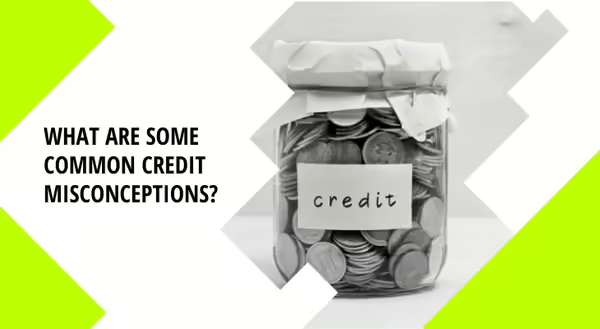
There are a lot of misconceptions around various personal finance topics. Many of this misinformation stems from confusion around credit scores and reports. Breaking through these misconceptions can help you understand what exactly credit scores are, and what purpose they serve in your financial life.
Checking credit scores
One common misconception is that checking your credit report hurts your score. This is false; it is actually encouraged to check your credit report at least once a year through one of the main three credit bureaus. This type of credit report check is called a ‘soft check,’ and will not harm your score. Hard checks done by other financial institutions can temporarily lower your score, such as when you apply for a personal loan. However, getting an occasional hard check should not affect your score to a great degree.
Credit card balances
Another common misconception is the idea that carrying a credit balance consistently can boost your score. Nothing is farther from the truth. Along with all the late fees, penalties, and interest rates that comes with carrying a balance, you can actually hurt your credit score. This is due to the fact that one of the aspects that affects your credit score is the amount you owe. Always pay your credit card bills on time, and if possible, in full.
Creditworthiness
The final misconception is the idea that credit scores only matter if you are applying for a loan. As a matter of fact, your credit score can affect many different areas of your life. Many landlords will do a check of your credit history before deciding to rent to you. Occasionally, a job you are applying for may ask to see your report. High credit scores can also give you more favorable interest rates on cards and open the possibility of rewards cards (such as cash back or airplane miles). Credit scores are used by many institutions as a marker of trust and discipline, and should be treated as such by the individual.
Battling misinformation is a modern-day struggle that every person must fight. Credit misconceptions can lead to financial confusion, as well as having the potential of hurting your score. Stay in the know and arm yourself against various credit misunderstandings in order to have a healthy financial life.
Written by: Hannah Rose Budzynski, Financial Wellness for College Students Peer Educator, University of Illinois Extension, Spring 2021.
Reviewed by: Kathy Sweedler, University of Illinois Extension.
For more financial education content, follow us on Instagram, Facebook, or Twitter.